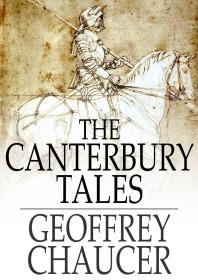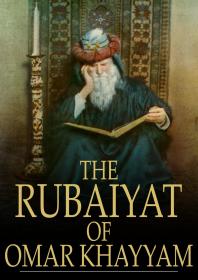 Go to A-Z Databases: eBooks to search for more eBooks.
Go to A-Z Databases: eBooks to search for more eBooks.
Want more on finding books or eBooks? Try our How to Use Books & eBooks guides.
 The Canterbury Tales
by
Geoffrey Chaucer
Geoffrey Chaucer's fourteenth-century masterpiece The Canterbury Tales is such a rollicking good read that you'll forget many critics and scholars also regard it as one of the most important literary works in English. A group of pilgrims are traveling together to visit a holy shrine at the Canterbury Cathedral. Along the way, they decide to hold a storytelling contest to pass the time, with the winner to be awarded a lavish feast on the return trip. The tales offered up in turn by each of the travelers run the full gamut of human emotion, ranging from raucous and ribald jokes to heartrending tales of doomed romance. Even if you don't consider yourself a fan of classic literature, The Canterbury Tales is worth a read.
The Canterbury Tales
by
Geoffrey Chaucer
Geoffrey Chaucer's fourteenth-century masterpiece The Canterbury Tales is such a rollicking good read that you'll forget many critics and scholars also regard it as one of the most important literary works in English. A group of pilgrims are traveling together to visit a holy shrine at the Canterbury Cathedral. Along the way, they decide to hold a storytelling contest to pass the time, with the winner to be awarded a lavish feast on the return trip. The tales offered up in turn by each of the travelers run the full gamut of human emotion, ranging from raucous and ribald jokes to heartrending tales of doomed romance. Even if you don't consider yourself a fan of classic literature, The Canterbury Tales is worth a read.
 Rubaiyat of Omar Khayyám
by
Omar Khayyám
Edward FitzGerald gave the title The Rubaiyat of Omar Khayyam to his translation of poetry attributed to the Persian poet, astronomer and mathematician Omar Khayyam (1048-1123). The word "Rubaiyat" means quatrains - verses of four lines. These works by Fitzgerald are the best known English translations. This edition contains both the first and fifth editions of the Rubaiyat. This influential translation is seen by many as a zenith of English literature in the nineteenth century.
Rubaiyat of Omar Khayyám
by
Omar Khayyám
Edward FitzGerald gave the title The Rubaiyat of Omar Khayyam to his translation of poetry attributed to the Persian poet, astronomer and mathematician Omar Khayyam (1048-1123). The word "Rubaiyat" means quatrains - verses of four lines. These works by Fitzgerald are the best known English translations. This edition contains both the first and fifth editions of the Rubaiyat. This influential translation is seen by many as a zenith of English literature in the nineteenth century.
![]()
Go to OneSearch to search for more print books.
Want more on finding print books? Try our How to Use OneSearch guide.
 Dante's Paradise
by
Dante Alighieri
The Paradise, which Dante called the sublime canticle, is perhaps the most ambitious book of The Divine Comedy. In this climactic segment, Dante's pilgrim reaches Paradise and encounters the Divine Will.
Dante's Paradise
by
Dante Alighieri
The Paradise, which Dante called the sublime canticle, is perhaps the most ambitious book of The Divine Comedy. In this climactic segment, Dante's pilgrim reaches Paradise and encounters the Divine Will.
 The Complete Poetry and Prose of Geoffrey Chaucer
by
Geoffrey Chaucer
THE COMPLETE POETRY AND PROSE OF GEOFFREY CHAUCER is intended to make Chaucer's texts accessible with a minimum of scholary interference. The critical, biographical, and linguistic essays are grouped at the end so as not to impede the approach to the text. By doing so, the student is able to enjoy the richness and humor of The Canterbury Tales as well as the beauty of Troylus and Criseyde. This collection will create a deeper appreciation for Chaucer and his genius.
The Complete Poetry and Prose of Geoffrey Chaucer
by
Geoffrey Chaucer
THE COMPLETE POETRY AND PROSE OF GEOFFREY CHAUCER is intended to make Chaucer's texts accessible with a minimum of scholary interference. The critical, biographical, and linguistic essays are grouped at the end so as not to impede the approach to the text. By doing so, the student is able to enjoy the richness and humor of The Canterbury Tales as well as the beauty of Troylus and Criseyde. This collection will create a deeper appreciation for Chaucer and his genius.
Search OneSearch for more books and eBooks in COM Library.
© 2026 COM Library
1200 Amburn Road, Texas City, Texas 77591
409-933-8448 . FAX 409-933-8030
This work is licensed under a Creative Commons Attribution-NonCommercial 4.0 International License